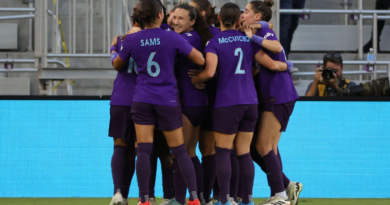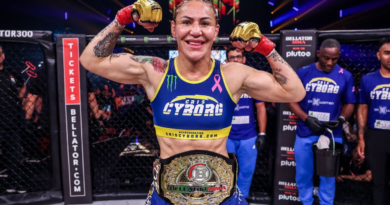What we know about shooting accuracy for 2023-24
Kyle Filipowski raised some eyebrows in April when the reigning ACC Rookie of the Year announced he would return to Duke for his sophomore season. At 15 points per game, the 7-footer was the leading scorer in a Blue Devils rotation that included the likes of projected 2023 first-round NBA draft picks Dereck Lively II and Dariq Whitehead.
Conventional wisdom quickly settled on three contributing factors for Filipowski’s decision. First, there’s “unfinished business” remaining for the rising sophomore. Jon Scheyer’s team lost by 13 to Tennessee in the round of 32.
Second, prominent athletes at blue-chip programs are exceedingly well-positioned to reap the rewards of name, image and likeness (NIL) opportunities. (While the above two factors clearly didn’t persuade Lively and Whitehead to remain at Duke, such considerations might have held more weight for their classmate.)
Third, Filipowski will now endeavor to improve his draft stock. Specifically, his perimeter shot, as the saying goes, needs work. Filipowski projects as a stretch-4 in the NBA, yet last season, he converted just 28.2% of his 3-point tries on 3.4 attempts per game.
To be sure, even this third factor need not be the last word. Noah Clowney, for one, is practically Filipowski’s 3-point twin (28.3% on 3.3 tries per outing at Alabama last season). Clocking in at eight months younger than Filipowski, the 6-foot-10 Clowney is nevertheless projected as a mid-first-round pick.
But what might next season look like for Filipowski?
Predictable, albeit collective, improvement
No doubt Filipowski is purposefully working on his shot in the offseason. The good news for Duke’s featured scorer is that his work might well yield the desired results, sooner or later.
For if there’s one thing we can expect to see across Division I as a whole in 2023-24, it’s that players like Filipowski will, as a group, improve markedly on their 3-point accuracy. This doesn’t mean better shooting is a sure thing for Filipowski individually, but the trend line for players in his category is indeed positive.
This trend is borne out by three decades of player data at sports-reference.com. Using the irresistible thresholds offered by numbers divisible by five, we can make some categorical statements. Our category of interest is major-conference players in their first or second years of eligibility that shot below 30% while attempting at least 100 3-pointers in a season.
Since 1992-93 there have been 205 instances where a player hit all of the above metrics. This group shot a collective 27.8% on its 3s. If we then stick with the 171 players that returned for a subsequent D-I season, the 3-point accuracy for the group as a whole jumped to 34.6% the following year.
An improvement of almost seven full percentage points in 3-point accuracy is significant, to say the least. This particular change for the better appears to be driven not only by “normal” player development but also by simple regression to the mean. While this particular group of players improved slightly at the free throw line from year to year (from 72 to 74%), that development was a trifle compared to the appreciable rise in accuracy from beyond the arc.
1:45
Roach, Filipowski lead Duke past Virginia to win ACC tourney
Jeremy Roach and Kyle Filipowski combine for 43 points in Duke’s win.
Some big names once missed their fair share of 3s
There are, of course, exceptions to this rule of overall year-to-year improvement in perimeter accuracy. Just ask Marcus Smart.
The onetime Oklahoma State star came in below 30% on at least 100 attempts from beyond the arc as a first- or second-year player in two consecutive seasons with the Cowboys. Nevertheless, Smart soldiered on and established himself at the next level as, well, Marcus Smart.
In fact, an all-star team made up of alumni from our 205 player-seasons would include not only Smart but also Allen Iverson, Tayshaun Prince, Gilbert Arenas, Randy Foye, Isaiah Thomas, Jaylen Brown, Anthony Edwards, Tyrese Maxey, Dejounte Murray, T.J. Warren and Dorian Finney-Smith.
None of which means Filipowski will take his place alongside such names or even that he’ll shoot better on his 3s in 2023-24. What we can say with some degree of confidence is he’s likely to improve from beyond the arc, given sufficient time,
After all, it was just four short years ago that Duke’s Tre Jones was also struggling from the perimeter (26%). In a tense round-of-32 game against the Blue Devils that year, UCF wasn’t satisfied to merely sag off of Jones. The Knights reportedly shouted “Shoot it!” and “Hell, nah!” at Mike Krzyzewski’s point guard. Duke nevertheless prevailed 77-76 before falling to Michigan State in the Elite Eight.
Jones returned for his sophomore season and hit 36% of his tries from beyond the arc. If in 2022-23 he was again coming in below 30% on his 3s, he at least was doing so in the NBA as a starter for the San Antonio Spurs.
In short, one reasonable forecast for 2023-24 is that young players who missed a high number of 3s last season will tend to shoot more accurately in the coming campaign. If that forecast is borne out by Filipowski’s sophomore season in particular, it won’t be the first time a player improved his draft stock by “working on his shot.”




